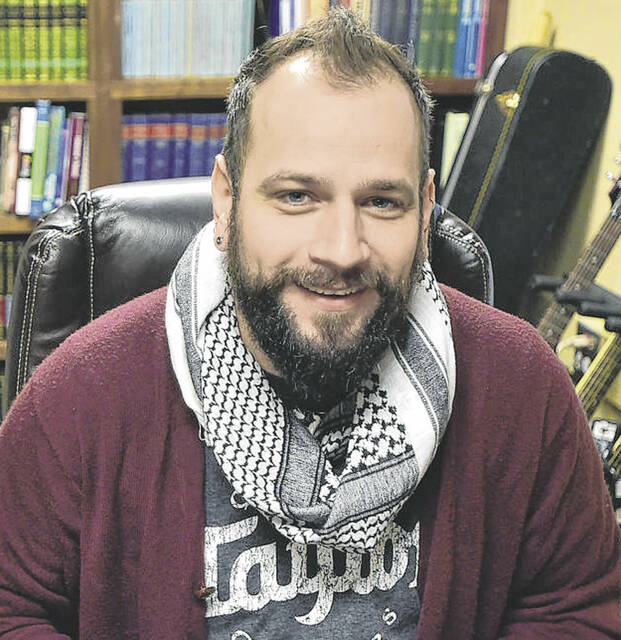
Myers
A constant refrain for me is the statement: “I hate technology.”
Few things create more immediate and unfettered stress than the sound of my phone ringing, pinging, tweeting or vibrating to announce an incoming message or call. More often than not, I utilize technology and many of the tools for communication that it provides out of necessity rather than desire.
I often wonder if the technology upon which so much of my life depends gives as much as it takes. The jury is still out on that particular issue, but it is beyond debate that technology, like so many things in this world, takes my breath away early and often, and not in a good way.
Technology is intended to make life more efficient and effective, and in many ways, it does. But I’ve been wondering is that always a good thing? We are now accessible everywhere all of the time.
Our family and friends can communicate with us no matter where we go or what we are doing. We can do work from home or a restaurant or a car or a beach, etc. The calendars on our devices are able to organize as many events as we can manage and more to make sure we are at the appropriate the place, at the appropriate time and through the appropriate means, whether physical or digital.
We can monitor the movements of family and friends through social media and special applications that allow us to see their physical location at any time. We can follow world events as they happen, minute by minute through a variety of websites, podcasts, posts and shows. We have access to all of the talking heads at the touch of a button, often in the palm of our hands.
Just writing this list is anxiety-inducing. It is breathtaking. Truly, as I wrote this paragraph, I found myself holding my breath.
We casually carry the weight of the world in the palm of our hands and then wonder why we are all perpetually exhausted and stressed out. It’s hard to find space to rest and renewal when we carry our work, the worries of the world and the trivial trifles of life with us everywhere we go.
In an extreme and humorous twist of irony, our technology is now programmed to recognize the overload and encourage us to breathe.
I had a smartwatch for several years. One day after updating the software, my watch vibrated, notifying me I had a message. When I looked at the watch, I was surprised to see the message was from the watch itself. The message told me it appeared I was stressed and I needed to take a minute to breathe. It then offered prompts to help me breathe more calmly and deeply.
What’s most humorous is the notification to prompt me to breathe only served to take more breath away. My watch was not wrong, though. I did need to slow down and breathe more deeply (or at all). I think many of us do. And we shouldn’t need some device to remind or to give us permission to do so.
In Genesis 2:7, we read it is when God breathed into humanity the breath of life that we became living beings. From the very beginning and throughout the Bible, the concept of breath is closely connected with spirit, whether that be the human spirit or the spirit of God. It doesn’t take much intellectual effort to see why those ideas are so closely intertwined. It is beyond dispute: Without “breath,” we cannot live.
This is true in both the spiritual and physical sense. And as people of faith, we would make the case that without the power and presence of God’s spirit filling us, life is less than it can and should be.
When we fail to breathe properly, in all senses of the word, life becomes overwhelming and unmanageable. With the constant barrage of toxicity we continue to consume and the unrelenting pace of life, it’s no wonder that our world, both outside and inside the church, has taken on shades of the valley of dry bones described in Ezekiel 37.
We have become worn out, empty shells, desperate for the breath of God’s spirit to fill us and restore the life we have so foolishly forfeited.
As funny as it may seem, we need to take a cue from my anxiety-inducing watch. We need to remember how to slow down and breathe deeply. We need to stop sacrificing the slower moments that can bring life when we’re with family, friends or even by ourselves for greater efficiency and effectiveness. We need to stop trading knowledge of those we love and the God who made us for knowledge of the endless issues our world creates to keep our attention.
Less of our breath should be given at the beck and call of dumb technology to the busyness of life and more should be received from the good things in our lives and the God who has provided them. Life won’t end if we slow down to breathe. Life will and does end when we don’t.
The Rev. Jeremy Myers is the lead pastor of First Baptist Church in Seymour. Read his blog at jeremysmyers.com. Send comments to [email protected].
